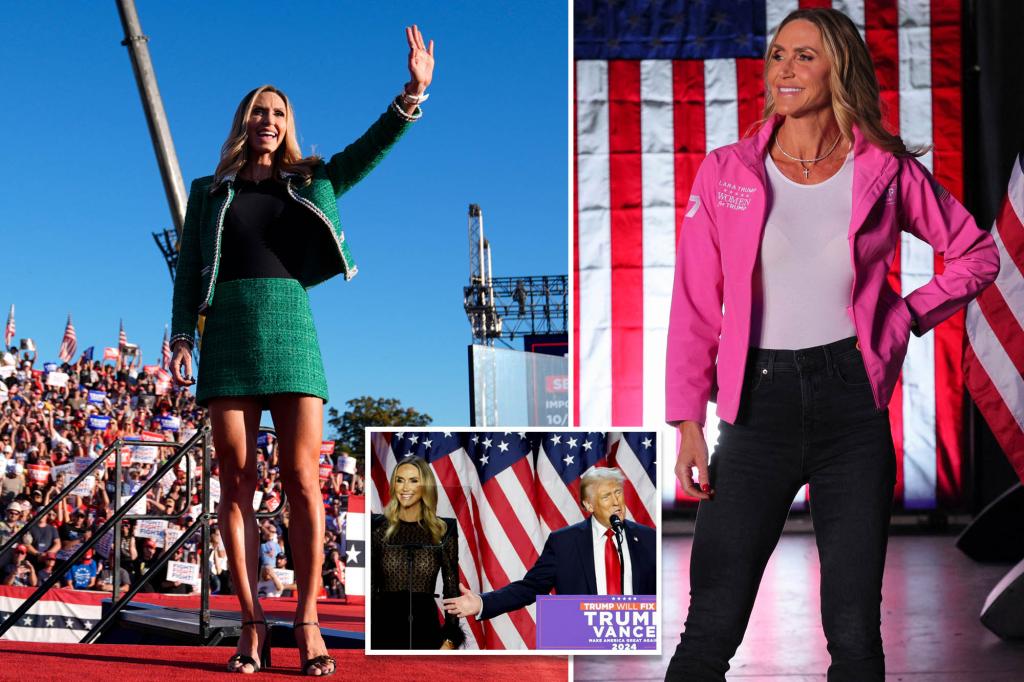Lara Trump, daughter-in-law of former President Donald Trump, has expressed strong interest in potentially succeeding Florida Senator Marco Rubio, who has been nominated for Secretary of State in the upcoming Trump administration. This announcement coincides with Lara Trump’s resignation from her position as co-chair of the Republican National Committee (RNC). While she acknowledged the need to gather more information, she affirmed her serious consideration of the Senate seat, stating she would “100% consider it.” Her potential candidacy has garnered support from prominent Trump allies, including Elon Musk, who, along with his mother, Maye Musk, has publicly praised Lara Trump’s qualities and advocated for her appointment. This potential shift in her career path marks a significant development in the political landscape of Florida.
The prospect of Lara Trump entering the Senate race introduces a new dynamic to the already evolving political scene. Her potential candidacy is contingent on Rubio’s confirmation as Secretary of State, a process expected to proceed smoothly. Florida Governor Ron DeSantis holds the authority to appoint Rubio’s replacement, and while Lara Trump is reportedly among his top choices, DeSantis is known to be meticulous in his decision-making processes. He has indicated that a thorough vetting process, involving several candidates, will take place in December before a decision is reached. This measured approach underscores the significance of the Senate seat and the weight DeSantis places on selecting the appropriate candidate. The timeline for this decision remains somewhat fluid, adding an element of anticipation to the political landscape.
While DeSantis deliberates, Lara Trump’s resignation from the RNC signals her intention to pursue new opportunities. Having served as co-chair since March, she feels she has achieved her goals in the role and is ready for a new challenge. Her departure leaves Michael Whatley as the sole chair of the RNC, responsible for navigating the party’s direction in the coming political cycles. Lara Trump’s decision marks a transition point for both her personal career and the leadership structure of the Republican Party. The confluence of these events – Rubio’s nomination, Lara Trump’s interest, and her resignation from the RNC – creates a complex interplay of political maneuvering and ambition.
Beyond Lara Trump, several other prominent figures are considered potential contenders for Rubio’s Senate seat. DeSantis’ shortlist reportedly includes individuals with extensive experience in Florida politics, such as Lieutenant Governor Jeanette Nuñez, Attorney General Ashley Moody, former House Speaker Paul Renner, Secretary of State Cord Byrd, former House Speaker Jose Oliva, and the governor’s Chief of Staff, James Uthmeier. This diverse pool of potential candidates reflects the depth of political talent within Florida and highlights the importance of the Senate position. The eventual selection will have significant implications for the state’s political representation and the balance of power in the Senate.
The timeline for filling Rubio’s seat remains dependent on his confirmation process. While he is expected to be confirmed, the exact timing remains uncertain, potentially extending into January. This delay introduces a degree of uncertainty into the appointment process and allows for further speculation about potential candidates. DeSantis’ deliberate approach, emphasized by his intention to conduct thorough interviews and vetting, suggests that a decision may not be imminent. This measured pace underscores the significance of the appointment and the governor’s commitment to selecting the most suitable candidate to represent Florida in the Senate.
The convergence of these events – Rubio’s nomination, Lara Trump’s interest and RNC resignation, DeSantis’ careful consideration, and the array of other potential candidates – has created a dynamic and evolving political scenario in Florida. The eventual outcome will significantly shape the state’s political landscape and influence the balance of power in the Senate. As the process unfolds, the political community waits with anticipation to see who will ultimately fill the vacant Senate seat and what impact this decision will have on Florida’s future.



